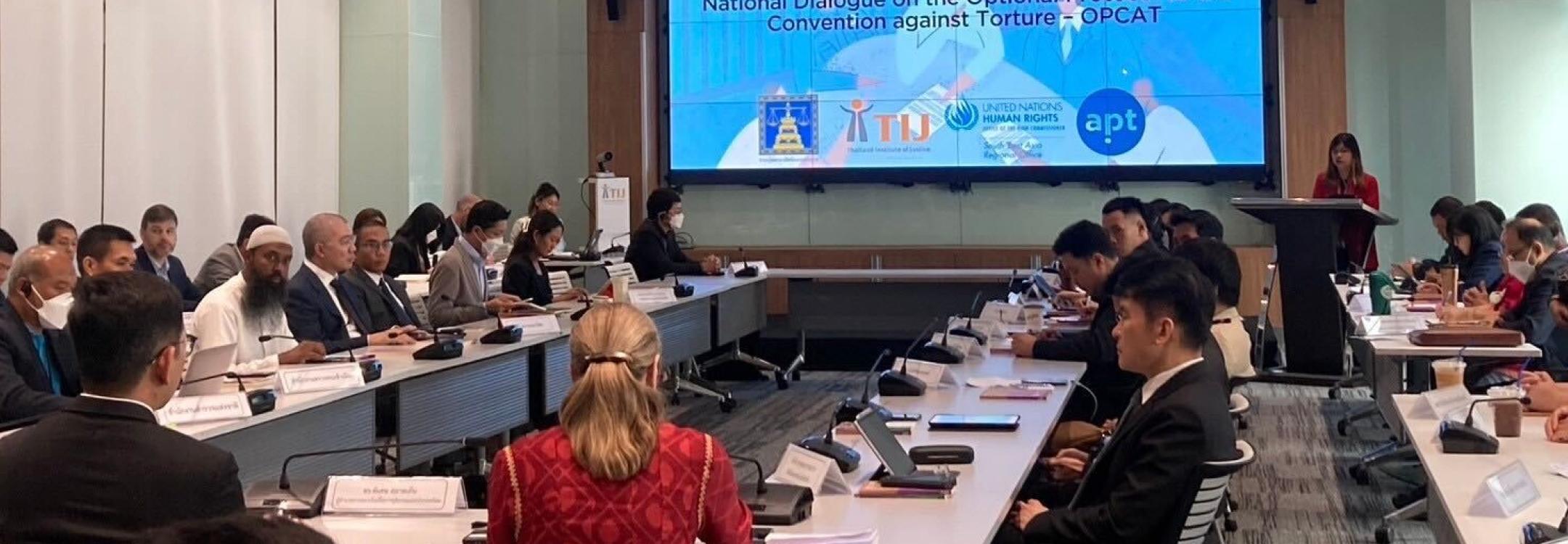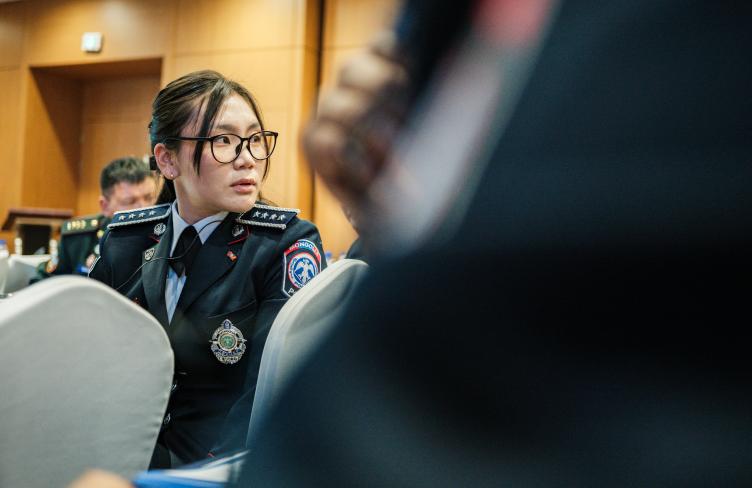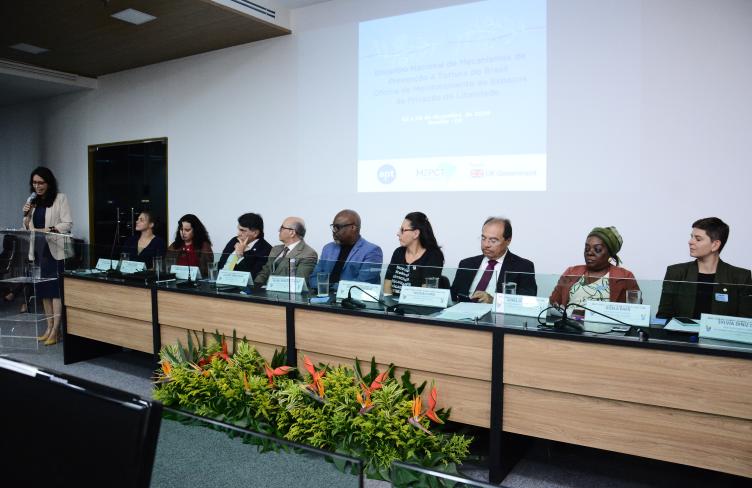
More than 60 participants representing 27 Thai government agencies, the Thai Parliament and civil society took part in a national dialogue on ratification of the Optional Protocol to the Convention against Torture (OPCAT).
The national dialogue – the first in-person event of its kind – was an opportunity to explore key aspects of the operation of OPCAT, including the designation and operation of National Prevention Mechanisms (NPMs) and the State’s relationship with the UN Subcommittee on Prevention of Torture.
Held in Bangkok on 9 February, the national dialogue coincided with the first anniversary of Thailand’s landmark anti-torture law – the Prevention and Suppression of Torture and Enforced Disappearance Act – coming into force.
“The national dialogue is also timely as Thailand will take part in a review by the UN Committee against Torture in November this year,” said APT Regional Project Officer Manachaya Yankittikul.
"The commitment to OPCAT signifies a nation's dedication to enhancing the protection of individuals from torture and improving conditions and treatment in detention. In doing so, it ensures compliance with the obligations of the CAT, reinforcing Thailand’s legal commitment to the prohibition of torture and ill-treatment,” Ms Yankittikul said.
State’s obligations under OPCAT often align with initiatives that are already in place. Hence, the ratification to OPCAT represents the opportunity to advance these practices and ensure that our efforts are fully in line with global norms.
The OPCAT establishes a system of independent visits to places of detention and requires the establishment of an independent national oversight body, known as an NPM.
Ben Buckland, APT Senior Adviser Oversight, described the role of NPMs to identify the risk factors that can lead to torture and to engage in an ongoing dialogue with authorities to address the issues identified. He also drew attention to the different types of NPM models that can be established, including those operating in other countries.
The National Human Rights Commission of Thailand provided an update on its NPM initiative unit, established in November 2023 in readiness for when Thailand ratifies the OPCAT. The purpose of the unit is to develop collaboration for detention monitoring and follow up with government authorities and civil society organisations.
The Commission is also campaigning for Thailand to ratify the OPCAT ratification with other national stakeholders.
The Royal Police Cadet Academy shared their commitment to include the OPCAT in classes on international human rights law class, along with the seven human rights treaties Thailand has ratified.
The national dialogue was jointly organised by the APT, the Office of the High Commissioner for Human Rights (OHCHR), the Rights and Liberties Protection Department (RLPD) under the Ministry of Justice, and Thailand Institute of Justice (TIJ).


